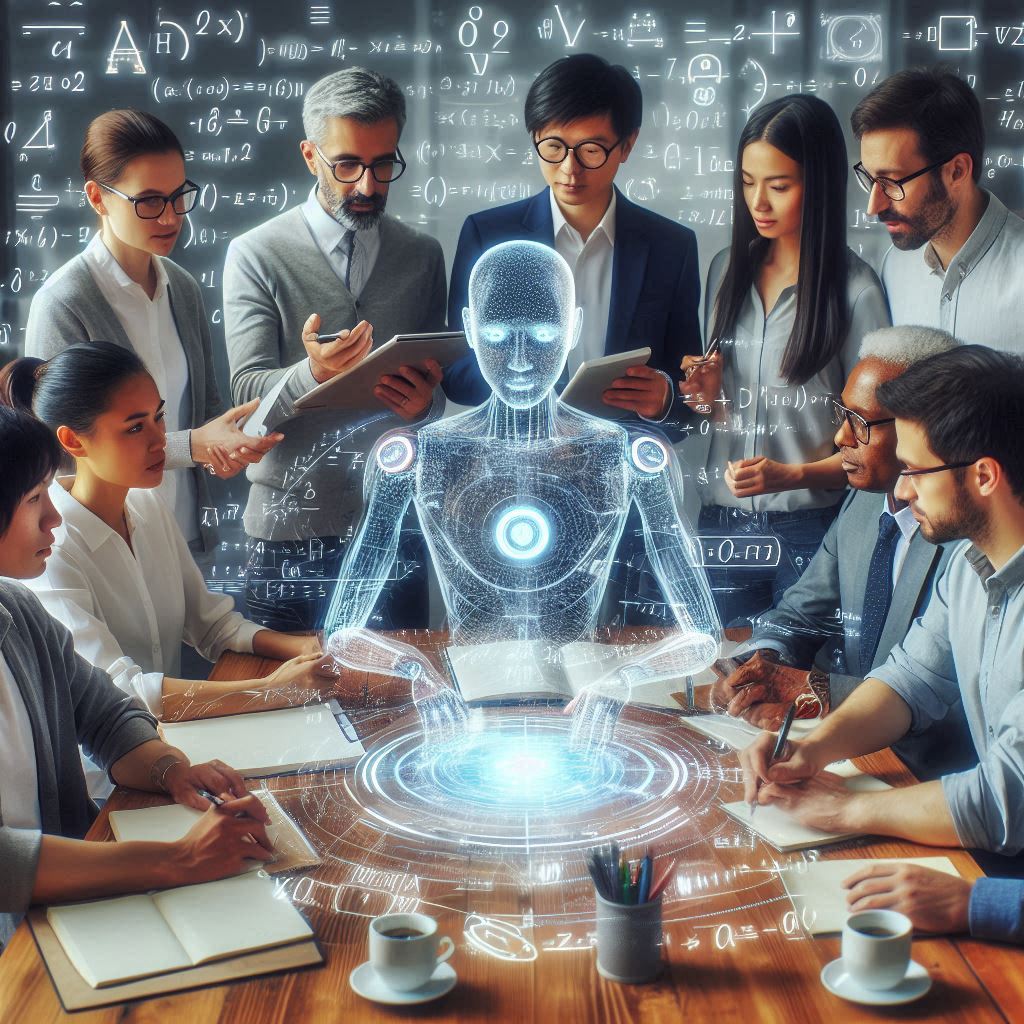AI and Mathematics: Current Trends and Future Directions
September 29, 2024
Bar-Ilan University, Ramat Gan, Israel

The workshop will take place on Sunday, 29.09.2024.
Planning to participate? Please register here. Registration is free, but mandatory.
Venue: Bar-Ilan University, building 202, room 301 (Google Maps)
Zoom link: https://biu-ac-il.zoom.us/s/89090774774 .
Event poster: Available here (please distribute).
Recordings: Recordings are available at this link.
Program
All times are in Israel Standard Time (UTC+3). Abstracts are available by clicking the titles.
9:30–10:00 Gathering and refreshments
10:00–11:10
Mathematics and AI: latest trends and future
Sergei Gukov (Caltech) – online; recording
In this talk, intended for a broad audience, I will use concrete examples from combinatorial group theory and low-dimensional topology to illustrate how rapid growth of AI algorithms can change the way we do mathematical research and help us with some of the most difficult mathematical challenges. One of the goals of this talk is to provide a gentle introduction to some of the modern tools in Machine Learning, in part explaining its increasing role in everyday life and in pure mathematics as well.
11:15–12:00
Teaching LLM agents to automate software engineering tasks
Boris Yangel (Nebius) – online; recording
LLM technology has come to a point where it becomes possible to build agentic systems that can perform complex sequences of actions over a code repository to implement new features and fix bugs in an interactive environment, provided with just a textual description of the issue that needs to be resolved. In this talk I will give an overview of this emergent avenue of research, present our recent results regarding training open source models to perform well in this domain, and talk about the challenges that we have faced.
12:00–13:10 Lunch
13:10–13:40
Language Models have a Hard Time Thinking Logically
Nachum Dershowitz (Tel Aviv University); recording
I will illustrate some of the difficulties modern generative language models have with logical reasoning (propositional and first order) and with self reflection.
13:45–14:30
AI, creativity, and fundamental questions in the philosophy of mathematics
Yuval Dolev (Bar-Ilan University); recording
Can AI be expected to be mathematically creative? I offer reasons why the answer should be negative. I do so in the context of two central doctrines in the philosophy of mathematics – Platonism and intuitionism. I argue that despite being opposed to each other on almost any question regarding the nature of mathematical objects and truth, these two rival positions do share this – that creativity is not reducible either to randomness, or to a deterministic computation. Moreover, I suggest there is a normative (aesthetic) foundation to mathematics, to which AI is blind. These considerations highlight the limitedness of AI and point to the indispensability and irreplaceability of human creativity.
14:30–15:00 Coffee break
15:00–15:30
Formalising Fermat
Kevin Buzzard (Imperial College London) – online; recording
Right now it seems that humanity has got to the stage where teaching an interactive theorem prover a proof of Fermat's Last Theorem will be technically possible, but a lot of work. What actually is involved, and how can AI help?
15:35–16:05
Data-Speaking LLM Agents
Amit Somech (Bar-Ilan University); recording
We all know that LLMs are great for all kinds of everyday tasks—writing, editing, summarizing articles, and even generating code on demand. But can we rely on them for data-focused tasks? On one hand, LLMs are trained on massive text datasets, some of which include structured data like CSVs and JSON files. Plus, thanks to forums like Stack Overflow, they should be able to help with writing SQL queries and data-processing code. However, we’ve found that when it comes to working with data, LLMs aren't as "fluent" as we might hope. When faced with larger tables, they often struggle to fully understand the structure or produce accurate tabular output. They also aren’t great at verifying facts when the information is presented in table form, even if they "know" the facts. In this talk, we’ll introduce several non-trivial data tasks, review how standard LLMs perform, and explore new architectures that could push the current capabilities forward.
16:15–17:00
Revolutionizing Math Education: Harnessing AI and Algorithms for Student Success
Alexei Miasnikov (Stevens Institute of Technology) – online; recording
While AI has captured widespread attention for its applications in various fields, its role in mathematics education presents both exciting opportunities and distinct challenges. This talk will focus on Gradarius, a system that uses graph algorithms to provide step-by-step feedback on student solutions, offering unmatched precision and rigor. We will explore how AI is integrated into this framework—not as the core mathematical engine, but as a tool to enhance usability, analyze student behavior, and adapt to diverse learning paths. This presentation will offer a balanced view of AI’s strengths and limitations, with a focus on how cutting-edge algorithms and machine learning can work together to revolutionize the teaching and learning of mathematics.
17:00–18:00
Open discussion
Moderated by Yoni Zohar (Bar-Ilan University); recording
Organizers: Elena Bunina (chair), Tomer Bauer, Guy Blachar, Gregory Soifer, Uzi Vishne and Yoni Zohar.
Sponsors:
- Gelbart Institute of Mathematical Sciences
- Department of Mathematics (Bar-Ilan University)